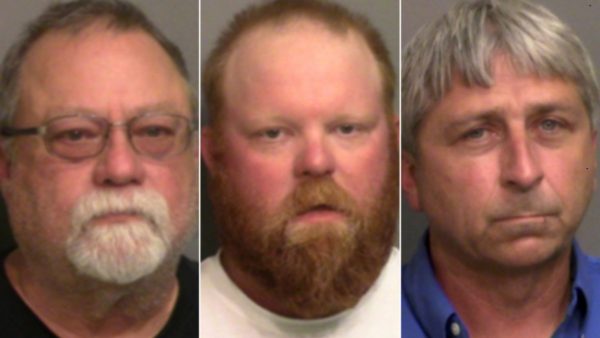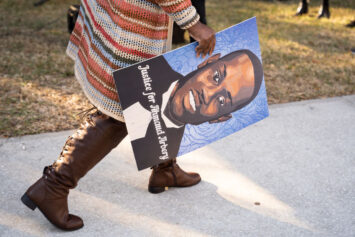Jury selection in the trial for the three men charged in the killing of Ahmaud Arbery is taking longer than usual, legal experts said.
More than 100 prospective jurors have been questioned in the case that has made national headlines, intensified the Black Lives Matter movement in 2020 and motivated a change in Georgia law.

Just 42 jurors have advanced to the second step of the selection process, which started on Oct. 18. Superior Court Judge Timothy Walmsley said jury selection could go on for another week, but the defense hopes they finish the first stage by the end of the week.
Ultimately, 12 jury members and four alternates will be selected for the trial of the men accused of killing the 25-year-old Black man.
CNN legal analyst Page Pate said jury selection is not taking that long for a case with massive media attention, but it is “extremely long” compared to lower-profile cases. Pate said, however, he is surprised at how difficult it has been to find impartial jurors.
According to reports, many of those screened for the jury have already formed opinions, know at least one person in the case, or are afraid to be involved.
Pate added that potential jurors are so familiar with the case because Arbery and the defendants lived in a small community of 16,000 people.
Gregory McMichael and his son Travis McMichael were caught on video following Arbery, who was jogging in the Satilla Shores neighborhood on the Brunswick outskirts in February 2020.
William “Roddie” Bryan, the third man charged in the case, also pursued Arbery, which he recorded on his cellphone. The three men were not charged for Arbery’s killing until Bryan had the video leaked on social media.
Attorneys for the defendants argue they were attempting to detain Arbery for a string of neighborhood break-ins when things turned deadly. The video shows Travis McMichael shooting Arbery at close range during a scuffle. Bryan allegedly hit Arbery with his truck after he joined the chase.
“Nobody deserves to be gunned down depending on the situation,” one potential juror reportedly said during questioning, who had watched the video. “My opinion is Ahmaud was murdered.”
The three men pleaded not guilty to malice, felony murder, aggravated assault, false imprisonment and criminal attempt to commit false imprisonment.
At least two dozen potential jurors have displayed negative feelings against the men on trial, CNN reported. According to reports, one person interviewed for the jury pool allegedly gave Arbery’s family a thumbs up.
One man who made it to the jury pool after questioning, a railroad worker, reminded the court that Arbery was unarmed when he was killed. He saw the video but told the court that he does not use a computer or social media.
“It was three persons who attacked one and no gun,” the railroad worker said. Still, he appeared impartial about the case’s outcome. He told the court: “There’s things that happened that we didn’t see and we don’t know.”
The proceedings at times pressed on Arbery’s family’s emotions, News4Jax reported. His mother, Wanda Cooper Jones, had to leave the courtroom after hearing endless recounts of the incident. His father, Marcus Arbery, told CNN he is praying for a jury to find justice for his son.
“It’s still emotional for my family because it’s a raw trauma,” he said. “You know, to watch my son get lynched like that by three white men, ran him down and lynched him like that. It’s really raw.”
A woman who made the jury pool said she supports the Black Lives Matter movement but “wants to believe Arbery’s race wasn’t a factor in the killing.”
Gregory McMichael attorney Laura Hogue said the Black Lives Matter, specifically the “Justice for Ahmaud” slogan used during demonstrations, has tainted the case.
The defense attorneys also want the potential jurors probed about Georgia’s citizen’s arrest law. Legal analysts told Reuters the attorneys would try to convince the jury that there was no felony because of the preexisting law.
Georgia’s citizen’s arrest law dates back to 1863. Civil rights advocates said it was used to abuse, kill and punish newly freed Black Georgians. It was repealed by lawmakers in May.
The law allowed civilians to arrest someone if they witnessed a crime or had “immediate knowledge” another person had committed one. If that crime was a felony and the suspect attempted to escape, the law also allowed civilians to detain the person suspected of the crime.

